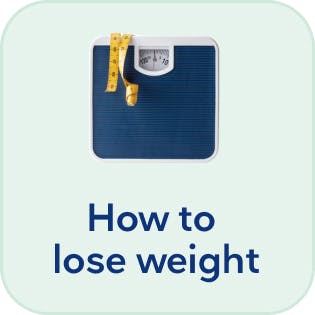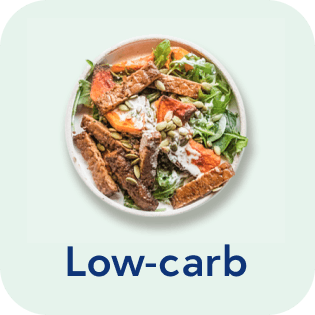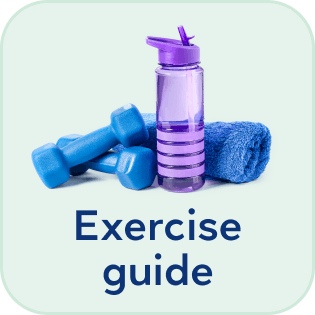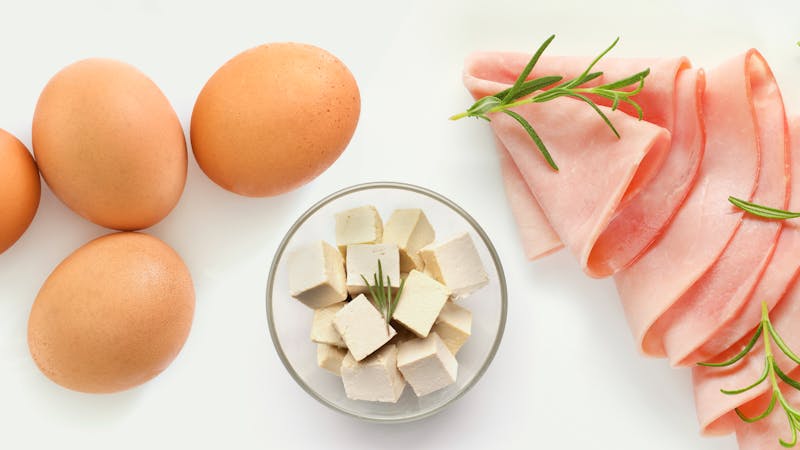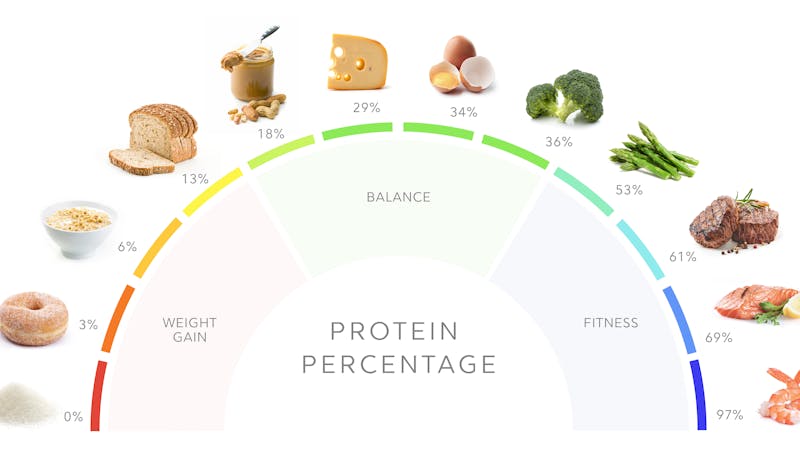Evidence based
The truth about “fat-burning foods”
Have you heard that certain foods can help you burn body fat and lose weight?
Some foods may potentially boost your metabolism and promote fat burning. However, it’s important to understand the strength of the evidence supporting the effects of these foods — along with how well they fit into a healthy, sustainable lifestyle that helps you lose fat.
In this guide, we’ll discuss the concept of “fat-burning foods,” explore the few foods and beverages that may slightly boost calorie burning, and share our best advice to help you achieve fat loss in a safe, sustainable way.
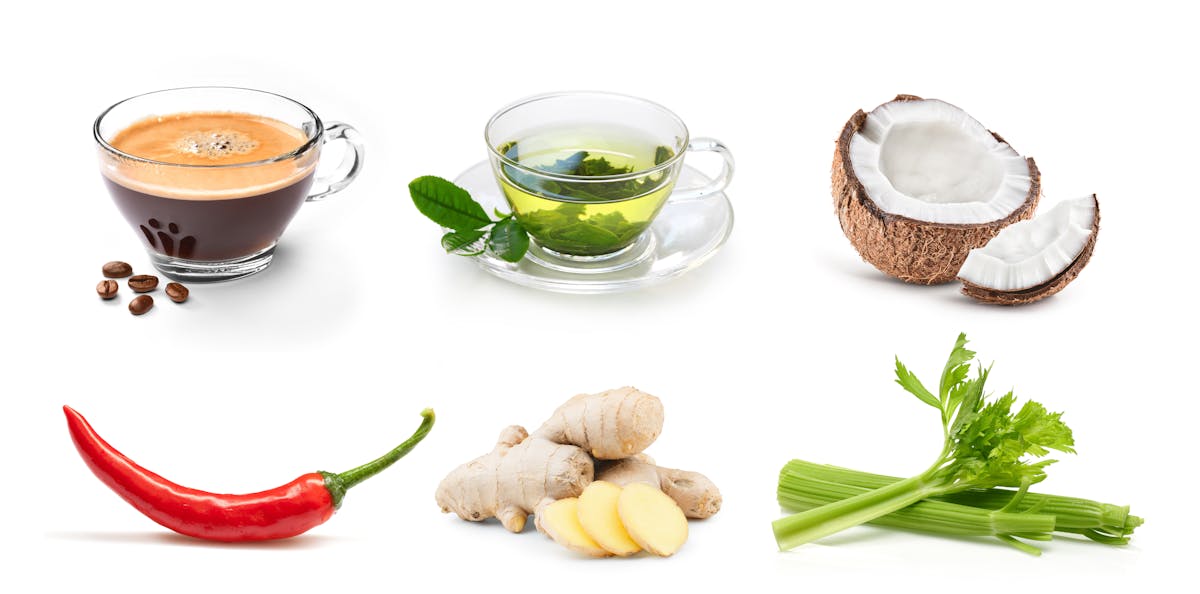

Foods and beverages that may slightly boost calorie burning
Can some foods help you burn fat?
Yes and no.
At Diet Doctor, we say that “calories count, but you don’t have to count them.” While our stance on this hasn’t changed, we’d like to briefly explain the role calories play in weight loss.
Your body needs energy (calories) to move and perform involuntary activities, such as breathing. You can burn glucose (sugar) or fat for energy, depending on what you’ve eaten and the type of activity you’re doing.
The fat you burn can come from the food you eat or the fat stored in your fat cells.
The amount of fat your body burns versus how much it stores is controlled by your age, weight, and activity level.
Even if you are burning fat as your main energy source, in order to lose body fat, you need to create a calorie deficit over time.
So technically, there aren’t any “fat-burning foods” that can blast away body fat.
However, some foods may cause a temporary boost in your metabolic rate, meaning you may burn slightly more calories after eating them. Can including these foods in your diet help you lose fat?
Let’s explore what the research says about them.
Foods that may — or may not — help you burn more calories
Certain foods or beverages may increase calorie burning, at least temporarily, but their effects are likely to be very small and vary from person to person. Plus, there is no evidence that, over the long term, these foods will lead to significant and lasting weight loss.
However, here are some foods and beverages that may temporarily boost your metabolism to a slight degree.
Coffee and tea


Can drinking coffee and tea help you lose body fat? It’s possible, depending on your age, weight, and the amount of caffeine in your morning brew.
Caffeine, the active ingredient in coffee and non-herbal tea, is well-known for helping you feel alert and energetic. As a stimulant, it also temporarily increases your metabolism.
In studies, people who consumed 100 to 200 mg of caffeine (the amount in roughly one to two cups of coffee) experienced a 3 to 7% increase in their metabolic rate for several hours.
Some, but not all, trials have found that caffeine provides a greater metabolic boost in lean people compared to overweight people.
Additionally, your resting metabolic rate (RMR) — the number of calories your body burns at rest — will affect how many extra calories you burn after drinking caffeinated coffee or tea.
In one trial, when lean and formerly obese people consumed 600 mg of caffeine within 12 hours, calorie burning increased by 8 to 11% in both groups during those 12 hours. However, because the lean people had higher RMRs, they burned an extra 150 calories, on average, while the formerly obese people burned an extra 79 calories, on average.
Now, 600 mg is a lot of caffeine! Consuming such a high amount in one day may cause rapid heartbeat, nervousness, difficulty sleeping, or other symptoms of overstimulation in many people.
To slightly boost your metabolism and promote fat loss without side effects, limit your intake to no more than three cups of coffee or five cups of tea daily. If you’re especially sensitive to caffeinated beverages, you may be best off drinking a single cup or avoiding them altogether.
Green tea and green tea extract
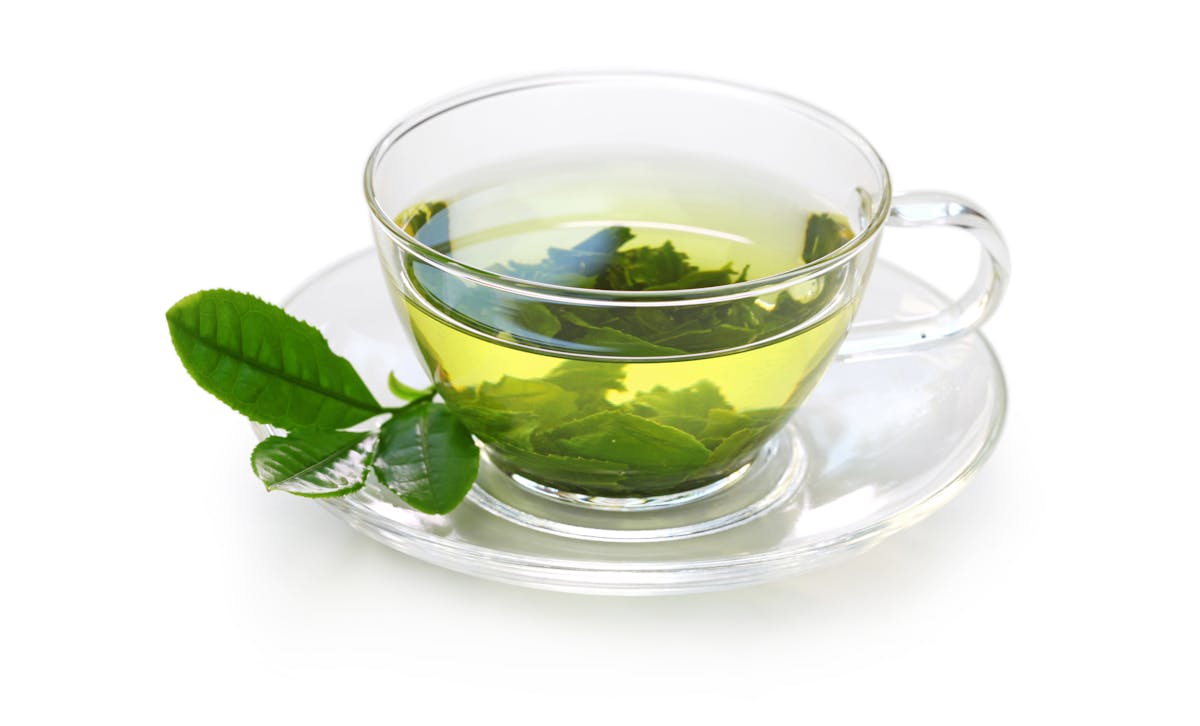

Green tea is often praised for its purported health benefits, including weight loss.
It contains about 20 to 40 mg of caffeine per cup, depending on how it’s brewed. Green tea extract is a concentrated form of green tea leaves; one capsule is equal to approximately one cup of green tea.
In addition to caffeine, green tea contains epigallocatechin gallate (EGCG), an antioxidant that’s been credited with raising metabolic rate.
In some trials, consuming green tea or green tea extract has been shown to increase calorie burning slightly.
Can combining green tea with exercise produce better results? Some studies suggest this may be the case.
In one trial, obese women who consumed two daily cups of green tea and performed resistance training burned an extra 260 calories per day, on average. Those who consumed the same amount of green tea without doing resistance training had no increase in the number of calories they burned daily.
Although green tea and green tea extract may temporarily increase calorie burning, reviews of trials testing their impact on weight loss have been mixed. Effects likely vary among individuals.
If you decide to experiment with green tea, aim for 300 to 500 mg of the extract or three to five cups of green tea per day. Larger doses might lead to rapid heartbeat or other symptoms of caffeine excess.
Capsaicin (hot peppers)
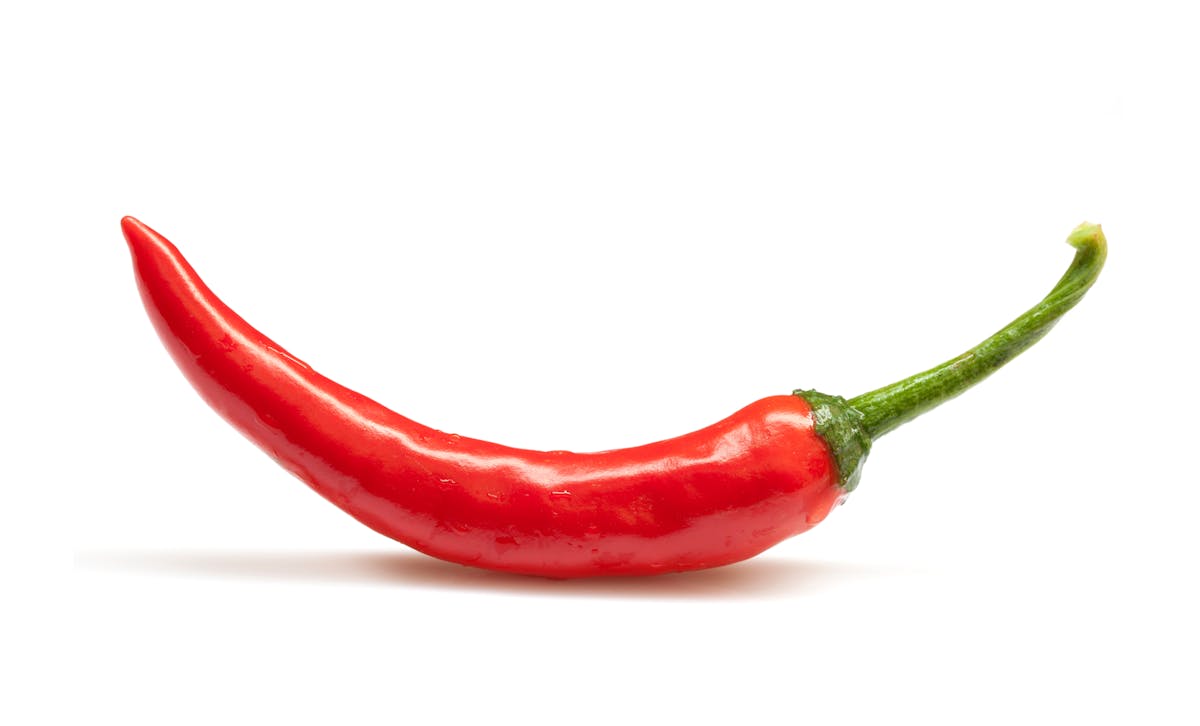

Capsaicin is the ingredient that makes cayenne, chili, jalapeño, and other peppers hot and spicy. Hot sauce, cayenne pepper flakes, and chili powder are popular seasonings that are rich in capsaicin.
In addition to spicing up your food, capsaicin might also help you burn a few extra calories.
One review of nine trials found that overweight and obese people who took capsaicin capsules or added cayenne pepper to their food at meals burned about 70 additional calories per day, on average.
Although capsaicin’s effects on fat burning appear minimal, if it agrees with you, feel free to add hot sauce or use chili powder and other peppers when preparing food.
If you’re a fan of spicy dishes, try our No-bean keto chili and Keto buffalo drumsticks with chili aioli recipes. However, since large amounts of capsaicin may upset your stomach, avoid going overboard with pepper-based seasonings.
Ginger
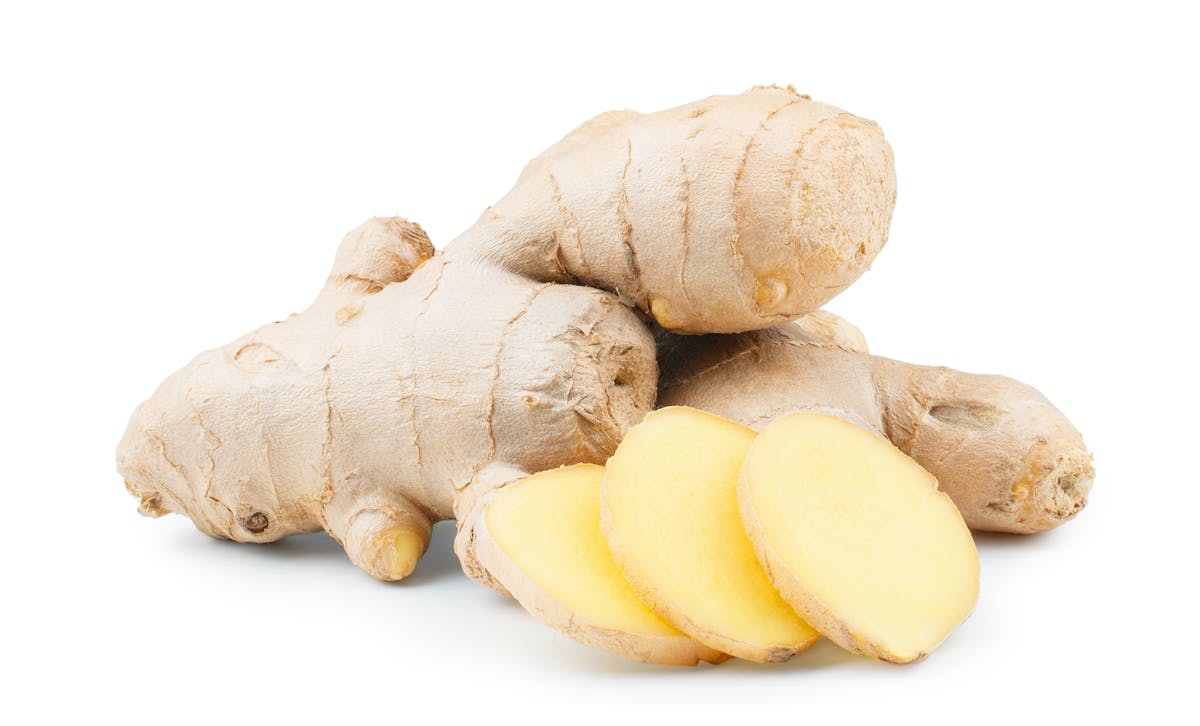

Ginger root is another spice that may do more than add flavor to food. In addition to helping relieve nausea, it might also slightly increase your metabolic rate.
In a small trial, men who consumed two grams (about one teaspoon) of ginger with their breakfast burned 43 more calories than when they ate the same meal without ginger. They also reported feeling fuller and more satisfied after the breakfast that contained ginger.
A review of 14 trials found that ginger may help overweight people lose a small amount of weight and abdominal fat, although results varied widely among participants in the studies.
While there’s no harm in using ginger in your food or beverages, doing so will likely have little effect on fat loss.
Apple cider vinegar
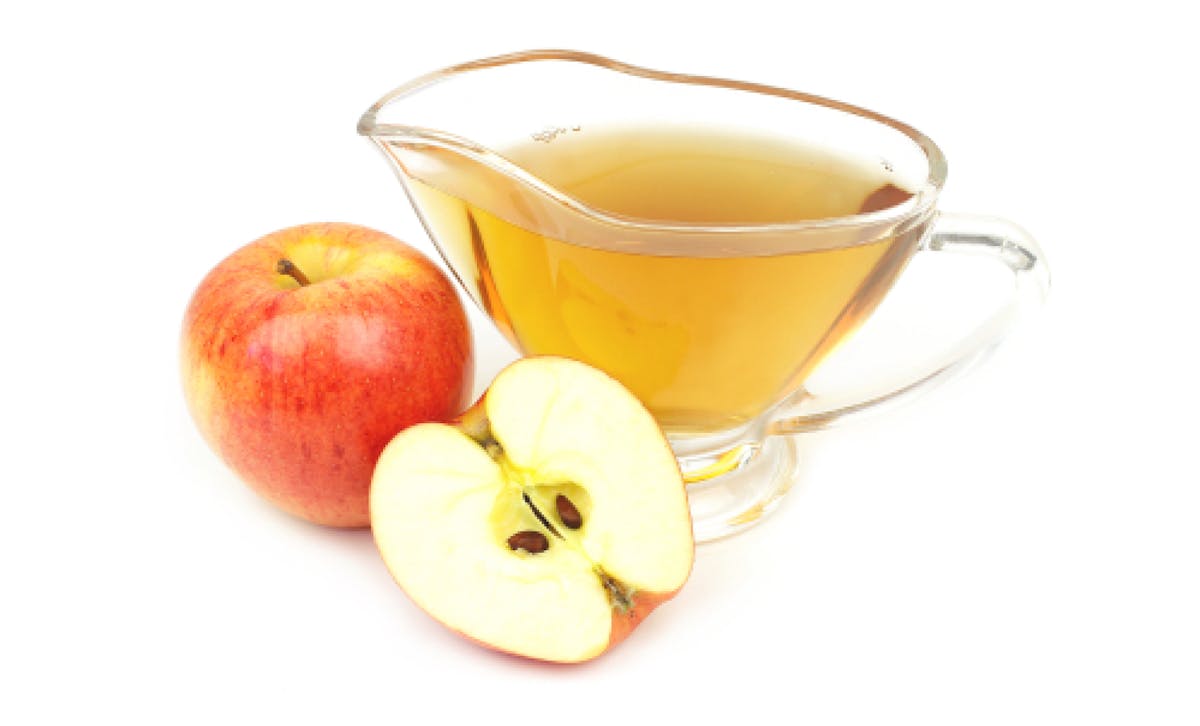

Apple cider vinegar is sometimes referred to as a “fat-burning food” because its active ingredient, acetic acid, was found to promote fat burning and prevent weight gain in several rodent studies.
Although we have less research on apple cider vinegar’s weight loss effects in people, the two human trials that exist suggest it could potentially be beneficial for losing a small amount of body fat.
In a trial of 144 obese people, those who took one tablespoon of vinegar per day lost an average of 2.6 pounds (1.2 kilos), and those who took two tablespoons per day lost 3.7 pounds (1.7 kilos). They also reduced their body fat percentage and waist size — all while following their usual diet and exercise routines.
In a smaller trial of people on a low-calorie diet, those who consumed two tablespoons of vinegar daily lost more weight than those who did not consume vinegar.
While more trials are needed to confirm these results, it may be worthwhile to give apple cider vinegar a try. However, it’s important to limit your dose to a maximum of two tablespoons per day, preferably diluted with water. Consuming large quantities of vinegar may cause digestive distress, and taking undiluted vinegar can potentially cause dental enamel to erode.
You can learn more about vinegar’s potential benefits and risks in our full guide on apple cider vinegar.
Coconut oil and MCT oil
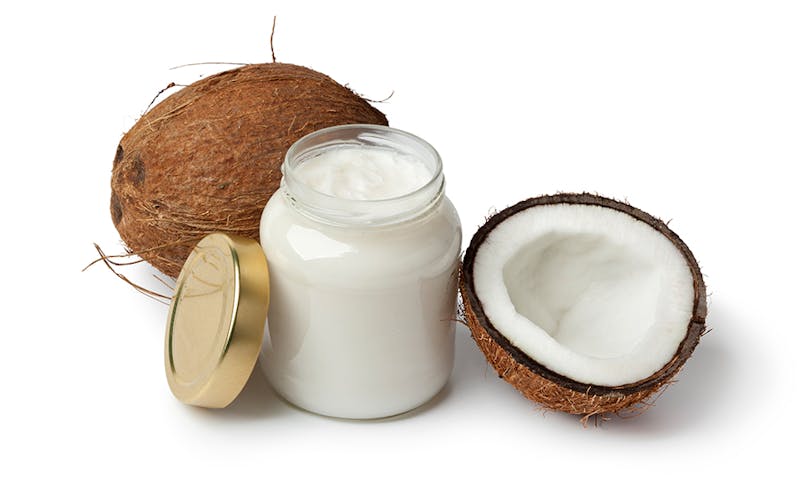

Coconut oil is rich in medium-chain triglycerides (MCTs). Unlike the long-chain fats found in most animal and plant foods, MCTs go directly to the liver after your body absorbs them. Your liver converts the fats into ketones, which are fat-like compounds that your brain can use as an energy source.
Some studies suggest that MCTs are less likely to be stored as fat compared to long-chain fats.
Although MCTs may boost your metabolism, they pack a lot of calories. MCTs provide 8.3 calories per gram, while long-chain fats provide 9 calories per gram. By contrast, protein and carbs each provide 4 calories per gram. So, fats of all types are a concentrated calorie source.
In the study mentioned above, the men consumed one to two tablespoons (14 to 28 grams) of MCT oil daily, which caused them to burn between 68 to 180 extra calories per day. However, since the MCT oil provided 116 to 232 calories, the men only had a slight calorie deficit, and some even had a calorie surplus.
Research suggests that MCT’s calorie-burning effects are strongest in the first one to two weeks and then diminish over time.
Adding these fats to your diet, without changing anything else, is likely to lead to weight gain over time due to increased calorie intake. If you want to try MCTs or coconut oil, switch them out for other fats in your diet instead.
Some people develop cramping, gas, or diarrhea after consuming MCTs. If you decide to try coconut oil or MCT oil to raise ketone levels, start with one teaspoon per day to minimize digestive side effects.
Celery and similar vegetables
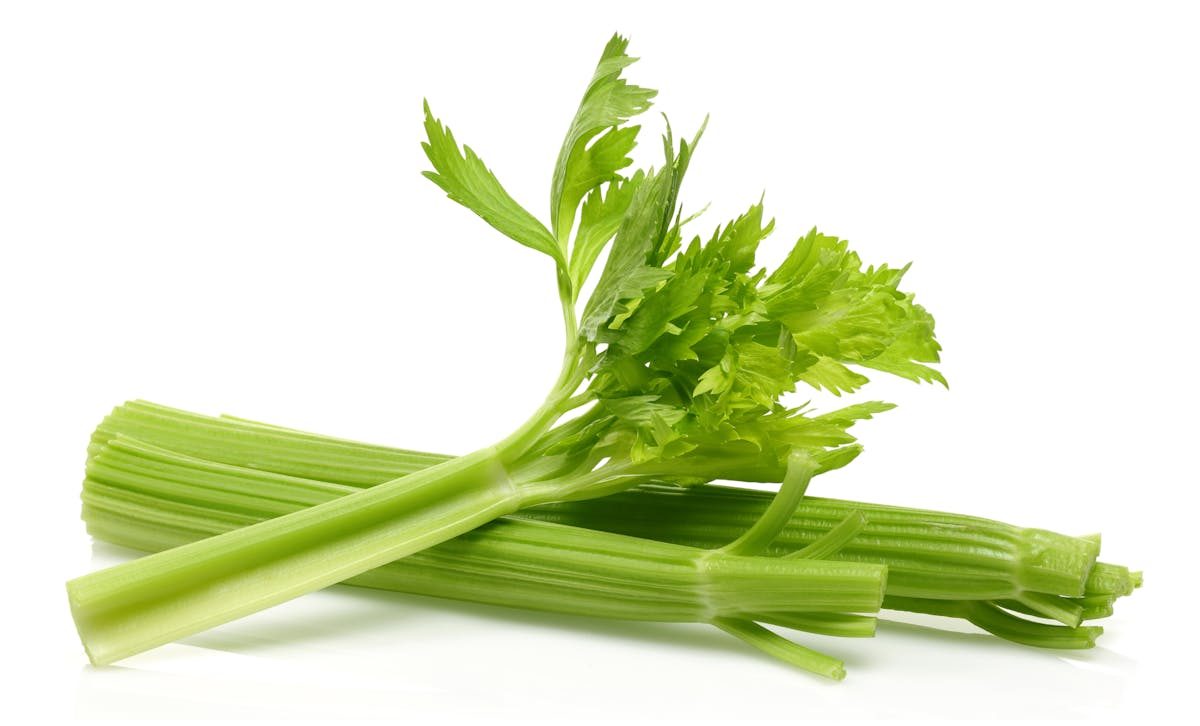

Have you heard that celery and similar high-fiber vegetables actually have negative calories because your body burns more calories chewing and digesting these plants than they contain?
Although research on the topic is limited, results from a 2014 trial suggest that this theory isn’t quite true.
In that trial, 15 women consumed 100 grams of celery (roughly one cup of chopped celery), which contained about 16 calories. Over the next three hours, they burned an average of nearly 14 calories digesting the celery. So, although the women burned most of the calories they consumed, they still had a net positive intake of about 2 calories.
Now, this was a single small study, and other high-fiber, non-starchy vegetables haven’t been similarly tested in trials.
Importantly, these vegetables contain very few calories, regardless of what happens when they are digested. Including high-fiber, low-calorie vegetables in your diet may help you feel full and make it easier to achieve a sustainable calorie deficit needed for fat loss.
Diet and lifestyle changes that can help you lose body fat
Unfortunately, specific foods have minimal, if any, effects on fat loss. The good news is, strong scientific evidence demonstrates that other diet and lifestyle shifts can help you lose body fat in a healthy, effective way.
Prioritize protein
Getting enough protein is key for losing fat and improving body composition — and its weight loss benefits start during digestion.
After eating, your metabolism speeds up briefly while you digest your meal. This process is known as the thermic effect of food. Of the three macronutrients — protein, carbohydrates, and fat — protein has the highest thermic effect.
Studies suggest that your metabolic rate increases by about 20 to 30% during protein digestion, 5 to 10% during carb digestion, and up to 3% during fat digestion.
Plus, protein can suppress your appetite by triggering your body to release hormones that help you feel full.
High-protein foods include meat and poultry, seafood, eggs, dairy, beans, and soy. To learn more, read our guide to the best high-protein foods for weight loss.
Eat a keto or low-carb diet
Following a keto or very low-carb diet can be a winning strategy for burning body fat.
High-level research shows that very low-carb diets reduce hunger and promote fat loss.
Lower insulin levels may also contribute to the impressive fat loss often seen on keto and low-carb diets. Cutting way back on carbs can cause insulin levels to drop significantly, prompting your body to burn fat — rather than store fat.
Interestingly, two trials suggest that eating a low-carb diet may help prevent your metabolism from slowing down after weight loss.
Following a keto or low-carb lifestyle is easy, once you know the basics. We can help you get started with everything you need in our keto and low-carb guides for beginners.
Exercise


Although diet is the biggest factor in losing body fat in a healthy way, physical activity can also play a role.
While exercising, your muscles can either use glucose (from carbs) or fat for fuel. During low-intensity or moderate-intensity aerobic exercise (such as biking, walking briskly, or dancing), your muscles use fat as their main source of energy.
However, rapid bursts of more strenuous exercise, such as high-intensity interval training (HIIT), may help you burn more calories than other forms of exercise performed for the same duration.
Strength training (lifting weights or pushing or lifting your own body weight) raises your metabolic rate while you’re exercising and builds muscle. Increasing your muscle mass means you’ll burn more calories while at rest.
Since all types of exercise boost calorie burning, you’ll get fat-loss benefits no matter which type you do.
For the best results, choose an activity you like and can do consistently several times a week. Learn more about how to select the best exercise for you in our complete exercise guide.
Summary
While a few specific foods and beverages may slightly increase calorie burning, don’t count on them to help you lose much body fat. Their effects are minimal, and using large amounts may cause some unpleasant or even dangerous side effects.
To lose fat in a healthy, sustainable way, stick with proven strategies like eating plenty of protein, keeping your carb intake low, and engaging in regular physical activity.



